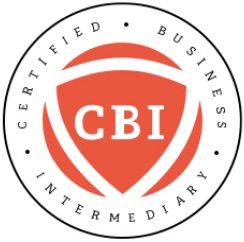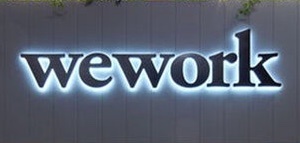Selling a Business:
How Accurate is The Valuation?
13 February 2023: Selling a Business: How Accurate is The Valuation?
If you’ve read even a couple of the posts on this blog, you know how important it is to get a business valuation done before, among other reasons, that business is brought to market.
 I mean, if you don’t know what it’s worth, you won’t know why it doesn’t sell (priced too high?) or if you’ve left money on the table (priced too low?) or if the sale will provide the capital the seller needs to realize whatever plans he or she may have for life after the sale.
I mean, if you don’t know what it’s worth, you won’t know why it doesn’t sell (priced too high?) or if you’ve left money on the table (priced too low?) or if the sale will provide the capital the seller needs to realize whatever plans he or she may have for life after the sale.
But how accurate can a valuation be and how useful can it be when selling a business?
I’ve sometimes written that we’re often the bearers of bad news.
Generally speaking, the owners of small businesses often have an exaggerated opinion of the value of their business. This is understandable given that the business has probably provided a handsome income over the years and may also have provided some real extravagances – a vacation home at the beach, great quality schooling for the kids, extensive travel, plenty of “toys” and who knows what else.
__________________________________________________________________________________
We offer a comprehensive coaching program – both group coaching in our Brokers’ Roundtable community as well as one-on-one coaching – tailored to Realtors, business owners, buyers and anyone interested in valuing, buying or selling a business.
If you’d like to learn more, email me at
jo*@Wo*******************.com
___________________________________________________________________________________
 We had one client years ago whose business provided toys – plenty of them – for him to enjoy and he stored them in a warehouse in the dry air of the Nevada desert so that his toys – all collectable and very valuable autos – would not come into contact with any normal humidity and start rusting. His business – warehouse leasing – paid for that warehouse (owner benefits).
We had one client years ago whose business provided toys – plenty of them – for him to enjoy and he stored them in a warehouse in the dry air of the Nevada desert so that his toys – all collectable and very valuable autos – would not come into contact with any normal humidity and start rusting. His business – warehouse leasing – paid for that warehouse (owner benefits).
But when the time comes to sell a business, one question that should be on the owner’s mind is what the business is worth. If they wisely choose to have the business valued, the next question is often, “how accurate will a valuation be?”
How and By Whom?
There are a couple of ways to get a business valued.
One is to hire a business appraiser; a CBA or Certified Business Appraiser. Another is to hire a qualified accountant. But not all accountants are qualified to value a business, so you have to know how to find the ones that are. Still another way is to hire a professional business broker or M&A specialist. But , like accountants, not all business brokers are qualified to take on this critical task. As with CBAs, you have to look at a business broker’s experience and certifications to get a sense of their capabilities.
When selling a business, hiring a CBA is probably the most certain way to get a valuation – in this case, an appraisal – that will carry the most weight with buyers and lenders. But this approach, because it is the most expensive, is generally of interest only to owners of larger or complex businesses.
_____________________________________________________________________________________
Our course, “Learn How to Value and SUCCESSFULLY Sell Businesses“, teaches you how to accurately value and successfully sell businesses.
The same can be said of accountants.
 But like business brokers, accountants can’t call their work an “appraisal” unless they possess an appraiser’s certification and license. But having a business valuation on the letterhead of a reputable accounting firm certainly accounts for something – at least in the mind of the seller – even if business valuation is a very small and seldom-employed aspect of that accounting practice.
But like business brokers, accountants can’t call their work an “appraisal” unless they possess an appraiser’s certification and license. But having a business valuation on the letterhead of a reputable accounting firm certainly accounts for something – at least in the mind of the seller – even if business valuation is a very small and seldom-employed aspect of that accounting practice.
And accountants, especially those at large firms that can offer this type of service, are cognizant of billable hours. We’ve occasionally worked with business owners who’ve had a valuation done by an accounting firm and it ain’t cheap, Bucko! Especially when compared with what professional business brokers charge.
(We were belatedly involved in one such instance where a regional accounting firm evaluated a business at a cost of $7,000. Unfortunately, the business was listed with a residential real estate agent who, after 18 months of trying to sell it, came to us for help. The valuation was well-done, used many of the same methods we use and we could not disagree with the accounting firm’s result. But we could have done the job for less than half what they charged.)
A reasonable alternative to either a CBA or accountant is a professional business broker; preferably one with a CBI certification.
Certified Business Intermediary
 The International Business Brokers Association (IBBA) awards the CBI designation – Certified Business Intermediary – to brokers who have a minimum of three years of active experience brokering businesses; completed three transactions as the primary seller representative; have completed a minimum of 68 hours of intensive classroom training; and passed a rigorous, comprehensive, four-hour examination.
The International Business Brokers Association (IBBA) awards the CBI designation – Certified Business Intermediary – to brokers who have a minimum of three years of active experience brokering businesses; completed three transactions as the primary seller representative; have completed a minimum of 68 hours of intensive classroom training; and passed a rigorous, comprehensive, four-hour examination.
Because of how challenging this path is, there are fewer than 600 CBIs in the world today.
But it must be acknowledged that valuing a business – no matter who does it – is as much art as it is science. There are dozens of variables that must be considered and weighed, and no matter how much training and experience someone has, things can go wrong.
To underscore that point, here are a couple of recent big-time, real world examples that you may be familiar with: Uber and WeWork.


The valuations for these two companies, done in preparation for their respective initial public offering (IPO) involved the very brightest and highest-paid Wall Street investment bankers. These were BIG DEALS!
Yet among these schmaat cookies, the valuation estimates for these two companies varied wildly – by tens of billions of dollars – among the various investment banks and when the “best” valuations of both companies were subjected to the whims of the public markets, they were exposed as appallingly inaccurate: Uber’s stock price dropped more than forty percent after its debut. WeWork was an even bigger disaster. It’s IPO valuation of $47 billion was so contentious that the IPO was scraped. When it “went public” two years later – by merging with a so-called Special Purpose Acquisition Company, or “SPAC” – it was valued at $9 billion. The big boys were off by “only” $38 billion!
One might wonder how all those experienced investment bankers got it so wrong.
An Inexact Science
 The market is dynamic – always in flux – rather than static. Business valuation professionals have to consider not only historical data but contemporary data such as interest rates, what the central bank is forecasting, inflation as it impacts inventory and near-term cost of goods, the availability of capital (how’s the stock market doing?), the availability of credit, alternative investments, the ROI that investors are looking for and, for businesses so located, whether California or France or anywhere else where government has seemingly come off the rails, is about the raise the minimum wage to $50 or $100/hr.
The market is dynamic – always in flux – rather than static. Business valuation professionals have to consider not only historical data but contemporary data such as interest rates, what the central bank is forecasting, inflation as it impacts inventory and near-term cost of goods, the availability of capital (how’s the stock market doing?), the availability of credit, alternative investments, the ROI that investors are looking for and, for businesses so located, whether California or France or anywhere else where government has seemingly come off the rails, is about the raise the minimum wage to $50 or $100/hr.
Of course, with some of the smallest business – those whose buyers are less sophisticated than the buyers of larger companies – that level of scrutiny is not always necessary but a valuation must be done nonetheless. As we explain to every potential client, if you don’t know the value of what you’ve got, how can you explain the value – and justify the price – to any buyer?
Admittedly, valuing a business in the arena in which we play – businesses with valuations of between roughly US$250,000 and $25m-$30 million – is far less complex than valuing large businesses; and certainly easier than valuing for an IPO. But when selling a business, a valuation must be done.
Professional Business Brokers
A key point that we teach our brokers is that the value we arrive at is not what we think the business is worth. It’s what the market suggests it’s worth. In fact, we don’t even refer to our valuation as a “valuation”. It is more a market report on value and this has to be communicated clearly and without equivocation to our clients, the owners of businesses.
We generally take 10-15 different approaches to every valuation. Some of these approaches result in outliers that we remove from our final calculations but all are market-based and provide, approach-by-approach, an ever increasingly accurate picture of what the business we’re evaluating is likely to fetch in the open market.
The results of our methods – which we state clearly is the market’s verdict and that we are no more than the delivery agent – has been, as often as not, a disappointment to our clients. What it has never been is effectively challenged.
The Bottom Line
When selling a business, there are multiple ways to value a business and one cannot be used exclusively because that one might, in fact, be the outlier in a field of 10. But we can only know that if we also use the other nine.
And from Certified Business Appraisers to accountants to professional business brokers, there are multiple specialists that can be employed for this task.
But whomever is employed, the bottom line, whether you’re a business owner considering selling or a business broker or real estate agent, is to recognize the importance of knowing how the market is likely to value the business you’re hoping to sell.
Life is short. Trying to sell a business without knowing what it’s probably worth generally means that the business is coming to market over-priced, wasting thousands of marketing dollars and countless hours in a mostly futile effort to sell it. (In more than 20 years of brokering businesses, we’ve seen an under-priced business only once.)
I’d like to hear from you. What topics would you like me to cover? How can we tailor these posts to be more useful to you and your business. Let me know in the comments box, below, or email me at
jo*@Wo*******************.com
.
If you have any questions or comments on this topic – or any topic related to business – I’d like to hear from you. Put them in the comments box below. Start the conversation and I’ll get back to you with answers or my own comments. If I get enough on one topic, I’ll address them in a future post or podcast.
I’ll be back with you again next Monday. In the meantime, I hope you have a safe and profitable week.
Joe
Searching For…
We’ve been contacted by an investment company seeking to acquire and manage home health, home care and hospice businesses with $1 million in EBITDA and based in the U.S. The buyer is focused on growth rather than on cutting costs and can provide a quick “out” – a 90-day transition period.
If any of you know of something that might fit, please let me know.

#business #businessacquisition #sellabusiness #becomeabusinessbroker #businessbrokering #businessvaluation #MergersandAcquisitions #buyabusiness #sellabusiness #realtor #realestateagents
The author is the founder, in 2001, of Worldwide Business Brokers and holds a certification from the International Business Brokers Association (IBBA) as a Certified Business Intermediary (CBI) of which there are fewer than 500 in the world. He can be reached at
jo*@Wo*******************.com
